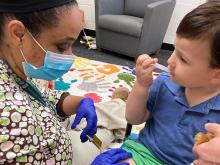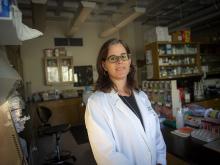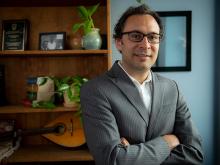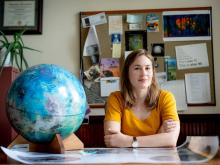Research In Real Time News
COVID-19, News Releases, Research in Real Time, Science
Tulane study finds viral load is not a true indicator of COVID-19 transmission risk
Tulane study finds viral load is not a true indicator of COVID-19 transmission risk
COVID-19, Health, News Releases, Research in Real Time
Tulane researchers design nanotechnology blood test to find hidden COVID-19 infections
Tulane researchers design nanotechnology blood test to find hidden COVID-19 infections
COVID-19, Health, News Releases, NOLA, Research in Real Time, Science, World
Tulane professor offers inside look at COVID-19 crisis and response
Tulane professor offers inside look at COVID-19 crisis and response
Health, News Releases, Research in Real Time, Science, World
Tulane spin-out company to develop new treatment for pelvic organ prolapse
Tulane spin-out company to develop new treatment for pelvic organ prolapse
COVID-19, News Releases, Research in Real Time
Tulane University, Children’s Hospital launch Moderna Covid-19 vaccine trial for children from 6 months to 11 years old
Tulane University, Children’s Hospital launch Moderna Covid-19 vaccine trial for children from 6 months to 11 years old
COVID-19, NOLA, Research in Real Time
Demographics, health and political factors contributed to K-12 schools continuing remote instruction
Demographics, health and political factors contributed to K-12 schools continuing remote instruction
News Releases, Research in Real Time
The Steven & Alexandra Cohen Foundation grants funding for Bartonella Research Consortium
The Steven & Alexandra Cohen Foundation grants funding for Bartonella Research Consortium
Health, Research in Real Time, Science, World
Tulane professor to lead NIH group developing advances in brain science
Tulane professor to lead NIH group developing advances in brain science
Culture, News Releases, Research in Real Time, Science, World
Tulane scientist part of mission to Venus
Tulane scientist part of mission to Venus









